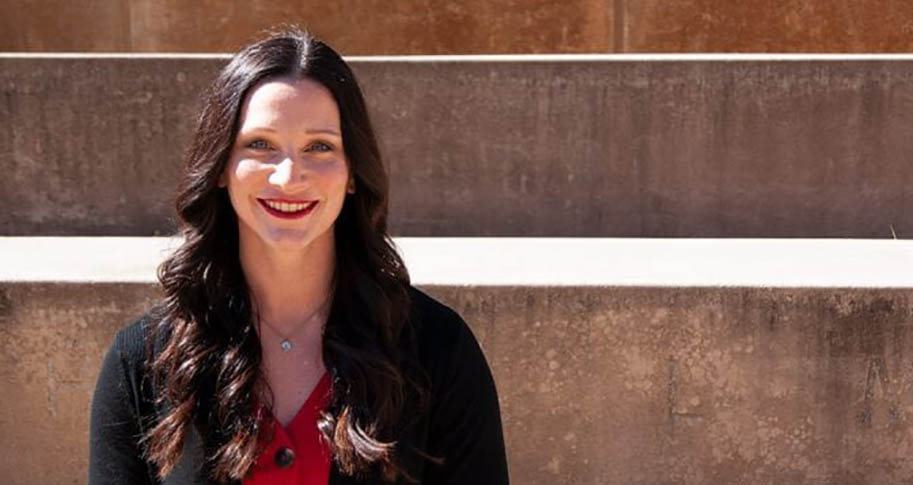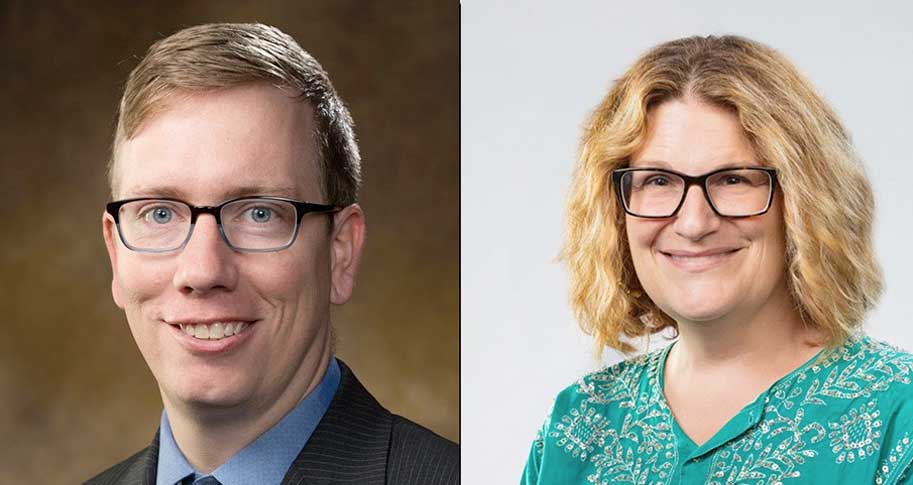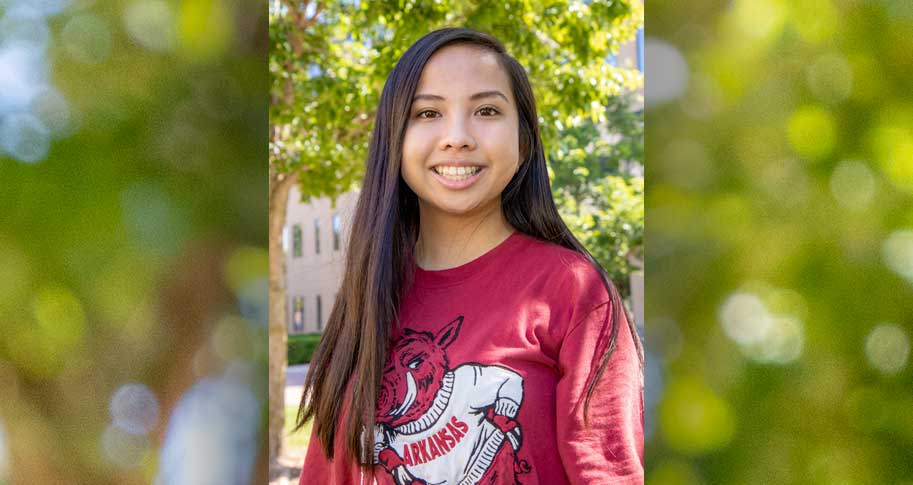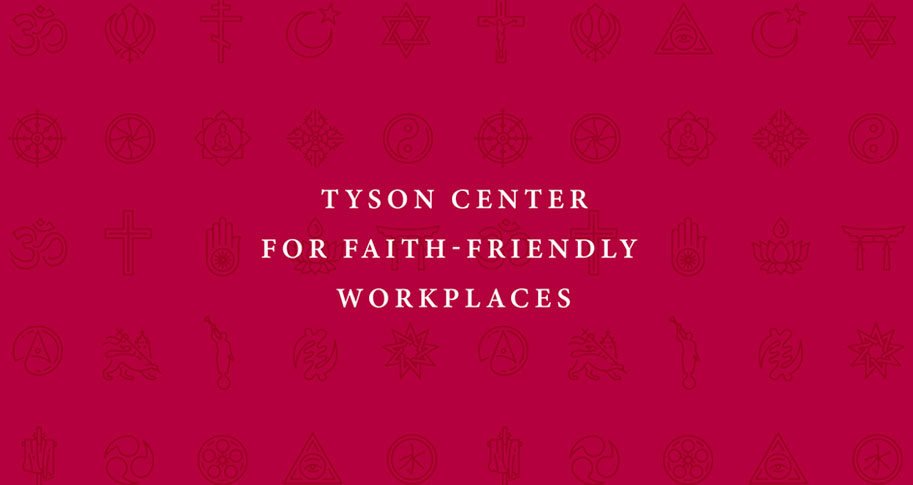
Katie Pounders knows firsthand the concerns that face online students. She was once one of them as a graduate student.
She was also a traditional undergraduate student – the kind who sits in a classroom as opposed to learning on a computer. She knows their issues, too.
After working at what was to be a career job in the corporate world, Pounders discovered it wasn’t her calling. She wanted to help students navigate their college career by serving as an academic adviser. Upon accepting her first advising position, Pounders agreed to pursue a graduate degree in higher education; however, returning to the classroom wasn’t going to be easy. She now had a job and bills to pay. The best solution was to take her classes online.
“It was more of a convenience factor for me,” Pounders says. “Working full time, I knew that I could go home, eat dinner and then hit the books.”
Which she did, eventually earning her master’s degree in college student personnel.
As the assistant director of online programs with the Sam M. Walton College of Business, Pounders can draw on her own experiences as she guides students through their online education – most of whom are in their mid-20s or older and have full-time jobs. Some are even retirees and others on active duty in the military, she says. Online classes offer a solution.
“This allows people the opportunity to further their education without having to uproot themselves, or maybe their families, to do so,” Pounders says. “They can obtain their degree from anywhere in the world. We’re a top-tier business school, and so it allows them to get a quality education and to provide a better life for themselves and their families without necessarily having to put everything on pause. I think that’s incredibly valuable.”
Pounders, who also advises on-campus students for Walton’s Undergraduate Programs Office, helps online students decide what classes to take, what workload they can handle as well as other aspects, such as informing them of the availability of financial aid and tutors should they need them.
“There are usually no synchronous class times associated with online courses; it’s up to the student to be disciplined and develop their own schedule,” Pounders says. “Some classes are task-oriented while others are based more on projects and testing.”
Blackboard Learn serves as a virtual classroom and has a tab to help acclimate new students.
She also refers them to the University of Arkansas’ One Stop Student Guide, which walks students through several processes, such as setting up a university email account, viewing class schedules, when to register for them, how to log in to UAConnect and other steps needed to be enrolled. In addition to advising, Pounders teaches Freshman Business Connections, an introductory course for all Walton students that is available both on campus and online. Assisting her with online students is Matt Willingham, an adviser with the Walton College.
Pounders, a Hot Springs native, joined Walton in 2014 when her position was created and when the college launched its first online program in general business. (It has since expanded to include degree programs in accounting and supply chain management with 281 students enrolled for the Spring 2021 semester, Pounders says.)
Pounders realized a one-size-fits-all advising plan wasn’t going to work, so she devised two: one for on-campus students and another for those online. She learned that the best method was for her to remain flexible and advise students by utilizing the technology available to her.
“Most online students are working full time or they live halfway across the country in a different time zone,” she says. “So, it’s not conducive to their schedule to set up a 30-minute appointment to outline their schedule.”
There have been other challenges. Early on, some students didn’t have internet or a computer at home and would log in to their classes by using computers at their public libraries. Others figured they would just stay late where they worked. Pounders had to explain that this may not be the best situation for her students.
“With so many classes, you may need to work on them for several hours each night,” Pounders says. “From my experience, as an online graduate student, there were nights where I would sit down at the computer around seven or eight, and I wasn’t done until midnight.”
But all of the hard work was worth it. She enjoys the relationships she develops while helping people meet their life-changing goals.
“Life is unexpected,” Pounders says. “You go to school originally, or maybe you go to a trade school, and then that works for so long. And then a pandemic happens, and you need to switch gears. Walton’s online programs gives people the opportunity to do that.”




